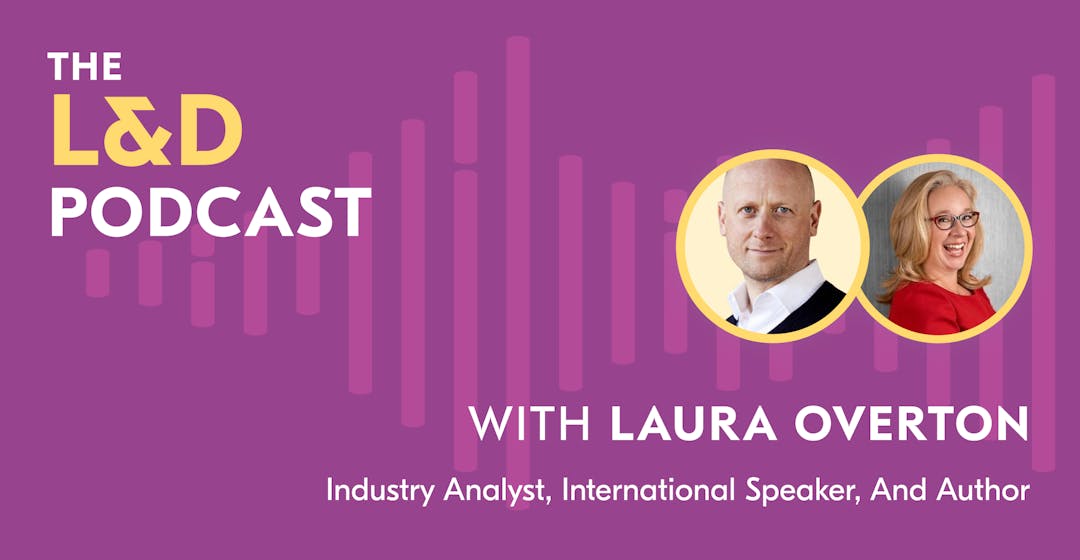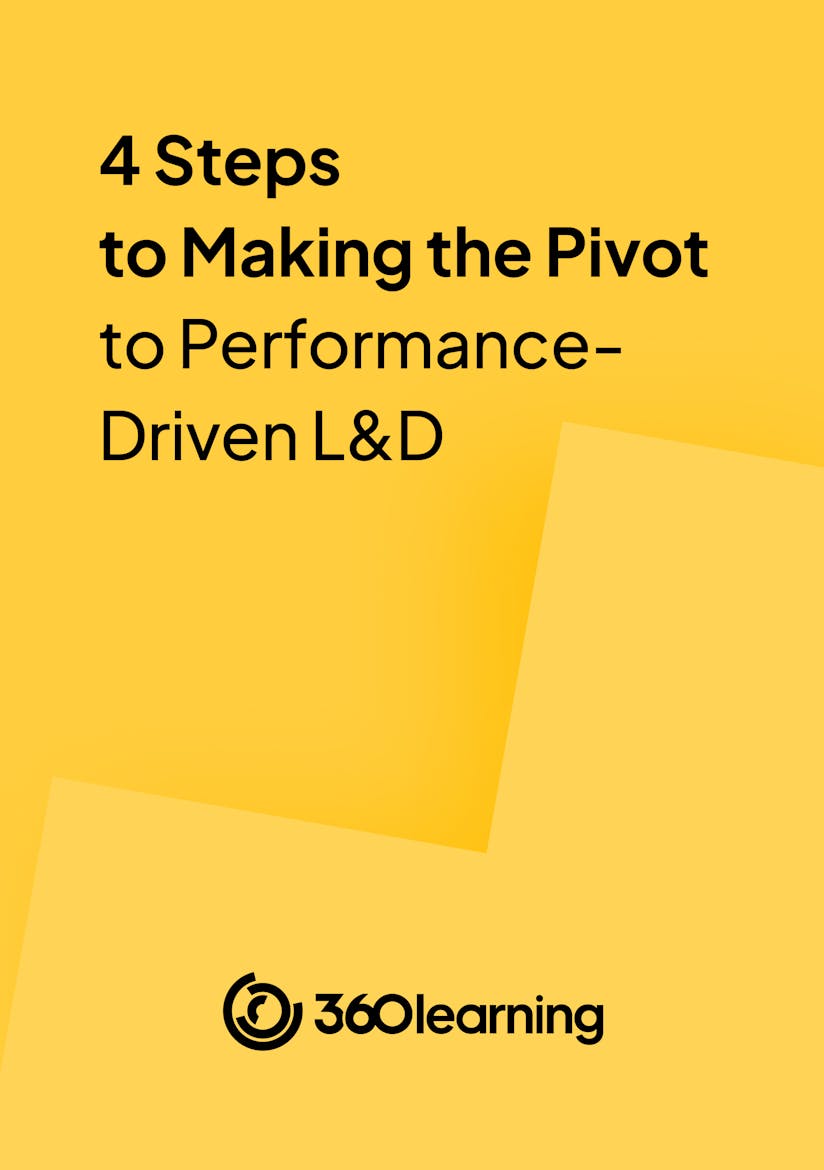

Training & Learning
From Skills to Technology-Enabled Learning: Unpacking CIPD’s 2023 Learning at Work Report With Laura Overton
The latest Chartered Institute of Personnel and Development (CIPD) report on learning and development reveals that L&D is under pressure, with 53% of us agreeing that overall team workload has increased.
And yet, we love our jobs, with 65% agreeing that our profession offers a meaningful career.
In this episode of The Learning and Development Podcast, I speak with Laura Overton, industry analyst, international speaker, and author, as we unpack the findings from the latest CIPD Learning at Work 2023 report.
Read on to learn more about applying the lessons learned from the report, the barriers facing our profession, and how creating an environment where our L&D teams can be curious and experiment will help us prepare for future challenges.
The scope of the Learning at Work report
The Learning at Work 2023 report is one of a series of longitudinal reports by the CIPD exploring L&D in the UK.
“The report seeks to uncover what’s changing, what's new, and what's important for us as a profession,” Laura explains. “The report's findings are a lot more optimistic than many of us would have thought. As a profession, we often find ourselves talking about what’s not working and how our budgets are likely to dwindle.”
Although budgets have decreased for some, the report found that more L&D leaders reported an increase in budget, headcount, and resources. “Equally, there is an increase in workplace expectations and workloads,” Laura says. “I think we're under a lot of pressure: that’s certainly one of the key findings.”
Applying lessons learned to the skills shortage
When comparing the remote working situation as a result of the COVID-19 pandemic and the impending skills shortage, Laura explains that there are differences and commonalities.
One commonality is of purpose and that these situations are not just L&D problems; they are also problems for HR, business leaders, and many other functions. “It gives us an opportunity to break down the silos between ways of doing business and bring our different levels of expertise together to address the challenge at hand,” she says.
“It was very encouraging to see in the CIPD report that 63% of us are collaborating and working across functions,” Laura explains.
It was very encouraging to see that 63% of us are collaborating and working across functions. What we can learn and bring forward is how departments worked together two years ago to address the overnight shift to remote working and what lessons we can adapt to the situation with skills.
The big message in the report and industry conversations is that the skills shortage is a problem to solve across disciplines. “What we can learn and bring forward,” Laura says, “is how departments worked together two years ago to address the overnight shift to remote working and what lessons we can adapt to the situation with skills.”
Related: Goodbye Jobs, Hello Skills: The Fundamental Shift Reshaping the Way We Think About Talent
Technology-enabled learning continues to rise
Technology-enabled learning, Laura explains, is becoming more and more acceptable, but she found a pattern during her research over the last 20 years.
“We’re trying to do what we used to do in the classroom using technology, which is one of the danger zones,” she says. “We see very little experimentation. A lot of the technology either replicates what we did on Zoom or pushes content out without fully looking at the evidence of how people learn, adapt, and change or how we use these tools.”
“In this report, I’m not seeing much of a shift in thinking about how all of the breadths of face-to-face through to digital can help people reflect, adapt, apply, and relearn,” Laura explains. “We’re not seeing the tools being used that way just yet.”
Related: Introducing The L&D Master Class: David James Teaches Impactful Digital-First L&D
The current barriers for L&D to overcome
A key finding to highlight from the report is that 65% of L&D professionals reported that they work in the field because they find it meaningful.
“We care about skills,” Laura says. “We care about development and bringing the most out of other people.”
Looking back over past CIPD studies, Laura has found that the lack of line management support has improved. In 2020, before COVID-19, 29% of L&D professionals thought line management support was a problem, but it has dropped to 19% in the latest report.
We care about skills. We care about development and bringing the most out of other people.
The report highlights some barriers that are bigger now than in 2020 that L&D could take more responsibility for, including L&D capability, the quality of our content, and our ability to prove the impact of our learning interventions. If we can tweak those barriers, we can have a different level of conversation with the business.
Related: Go Beyond Learning Metrics: Our 6-Step Expert Playbook for Proving Your L&D Impact
Successful L&D behaviours and traits
The report does well to highlight some of the successful behaviours and traits that our stakeholders appreciate.
Learning practitioners who leaders value are more likely to agree that:
- They design or make recommendations using evidence-informed principles to address performance issues.
- They are proactive in identifying the performance issue before recommending a solution.
- They apply adult learning and motivation theory in practice.
- They're skilled at effective learner engagement, transfer, and impact.
- They have a process for using feedback for continuous improvement of L&D interventions.
- They have a process for assessing learning impact, and their team takes action based on analytics to create insight and measure value.

Impactful, demonstrable L&D in 4 simple steps
By providing your contact info, you agree to receive communications from 360Learning. You can opt-out at any time. For details, refer to our Privacy Policy.
L&D’s readiness to face our challenges
As Laura explains, she was very interested in the L&D skillset section in the report and the extent to which L&D professionals broadly agree on the state of our readiness.
“But only 24% of us strongly agree that our teams have the courage to speak up in our organisations,” she says. “Only 20% of us strongly agree that L&D demonstrates curiosity and makes the most of opportunities to learn, while 26% expect ourselves to reflect on the lessons we have learned.”
Only 24% of us strongly agree that our teams have the courage to speak up in our organisations. Only 20% of us strongly agree that L&D demonstrates curiosity and makes the most of opportunities to learn, while 26% expect ourselves to reflect on the lessons we have learned.
As Laura points out, there is plenty in the report that shows us how we might learn and grow. “But making it intentional is going to be the real secret to our future readiness,” she says. “And we as learning leaders need to create environments where it’s safe for our teams to be curious, experiment, and have a voice, which will help our readiness.”
Thanks to Laura for sharing her insights and experience with us! Check out our episode with Shannon Martin about how you can make podcasting effective for your learning and development initiatives or Sarah Allen and Molly Howes on how Aviva is upskilling and reskilling employees in digital skills to future-proof their workforce.
Want more peer insights on transforming workplace learning? Sign up to become a member of the L&D Collective, and check out our other #CLOConnect interviews with top L&D leaders on driving growth and scaling culture through Collaborative Learning. Or you can subscribe (below 👇) to our weekly newsletter to receive our latest posts directly in your inbox.




